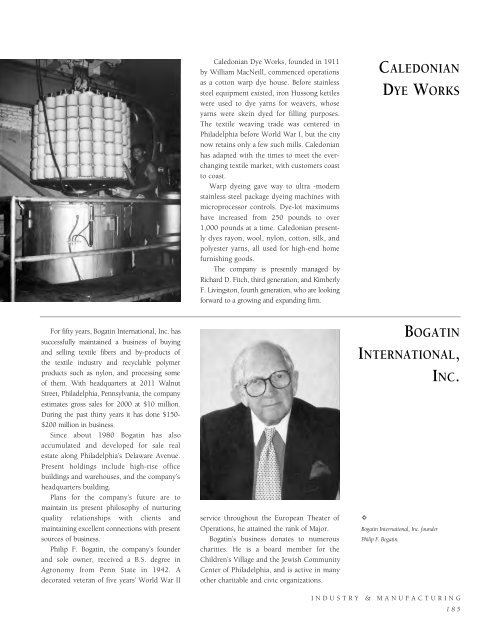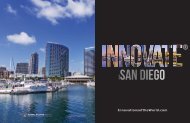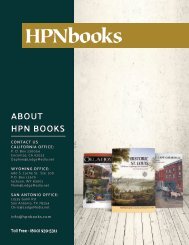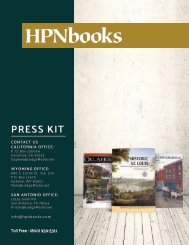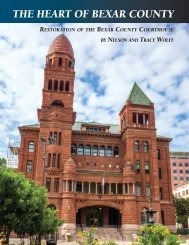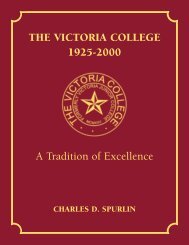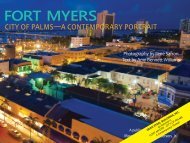Historic Philadelphia
An illustrated history of the city of Philadelphia, paired with the histories of companies, families and organizations that make the region great.
An illustrated history of the city of Philadelphia, paired with the histories of companies, families and organizations that make the region great.
You also want an ePaper? Increase the reach of your titles
YUMPU automatically turns print PDFs into web optimized ePapers that Google loves.
Caledonian Dye Works, founded in 1911<br />
by William MacNeill, commenced operations<br />
as a cotton warp dye house. Before stainless<br />
steel equipment existed, iron Hussong kettles<br />
were used to dye yarns for weavers, whose<br />
yarns were skein dyed for filling purposes.<br />
The textile weaving trade was centered in<br />
<strong>Philadelphia</strong> before World War I, but the city<br />
now retains only a few such mills. Caledonian<br />
has adapted with the times to meet the everchanging<br />
textile market, with customers coast<br />
to coast.<br />
Warp dyeing gave way to ultra -modern<br />
stainless steel package dyeing machines with<br />
microprocessor controls. Dye-lot maximums<br />
have increased from 250 pounds to over<br />
1,000 pounds at a time. Caledonian presently<br />
dyes rayon, wool, nylon, cotton, silk, and<br />
polyester yarns, all used for high-end home<br />
furnishing goods.<br />
The company is presently managed by<br />
Richard D. Fitch, third generation, and Kimberly<br />
F. Livingston, fourth generation, who are looking<br />
forward to a growing and expanding firm.<br />
CALEDONIAN<br />
DYE WORKS<br />
For fifty years, Bogatin International, Inc. has<br />
successfully maintained a business of buying<br />
and selling textile fibers and by-products of<br />
the textile industry and recyclable polymer<br />
products such as nylon, and processing some<br />
of them. With headquarters at 2011 Walnut<br />
Street, <strong>Philadelphia</strong>, Pennsylvania, the company<br />
estimates gross sales for 2000 at $10 million.<br />
During the past thirty years it has done $150-<br />
$200 million in business.<br />
Since about 1980 Bogatin has also<br />
accumulated and developed for sale real<br />
estate along <strong>Philadelphia</strong>’s Delaware Avenue.<br />
Present holdings include high-rise office<br />
buildings and warehouses, and the company’s<br />
headquarters building.<br />
Plans for the company’s future are to<br />
maintain its present philosophy of nurturing<br />
quality relationships with clients and<br />
maintaining excellent connections with present<br />
sources of business.<br />
Philip F. Bogatin, the company’s founder<br />
and sole owner, received a B.S. degree in<br />
Agronomy from Penn State in 1942. A<br />
decorated veteran of five years’ World War II<br />
service throughout the European Theater of<br />
Operations, he attained the rank of Major.<br />
Bogatin’s business donates to numerous<br />
charities. He is a board member for the<br />
Children’s Village and the Jewish Community<br />
Center of <strong>Philadelphia</strong>, and is active in many<br />
other charitable and civic organizations.<br />
BOGATIN<br />
INTERNATIONAL,<br />
INC.<br />
✧<br />
Bogatin International, Inc. founder<br />
Philip F. Bogatin.<br />
INDUSTRY &<br />
MANUFACTURING<br />
185


